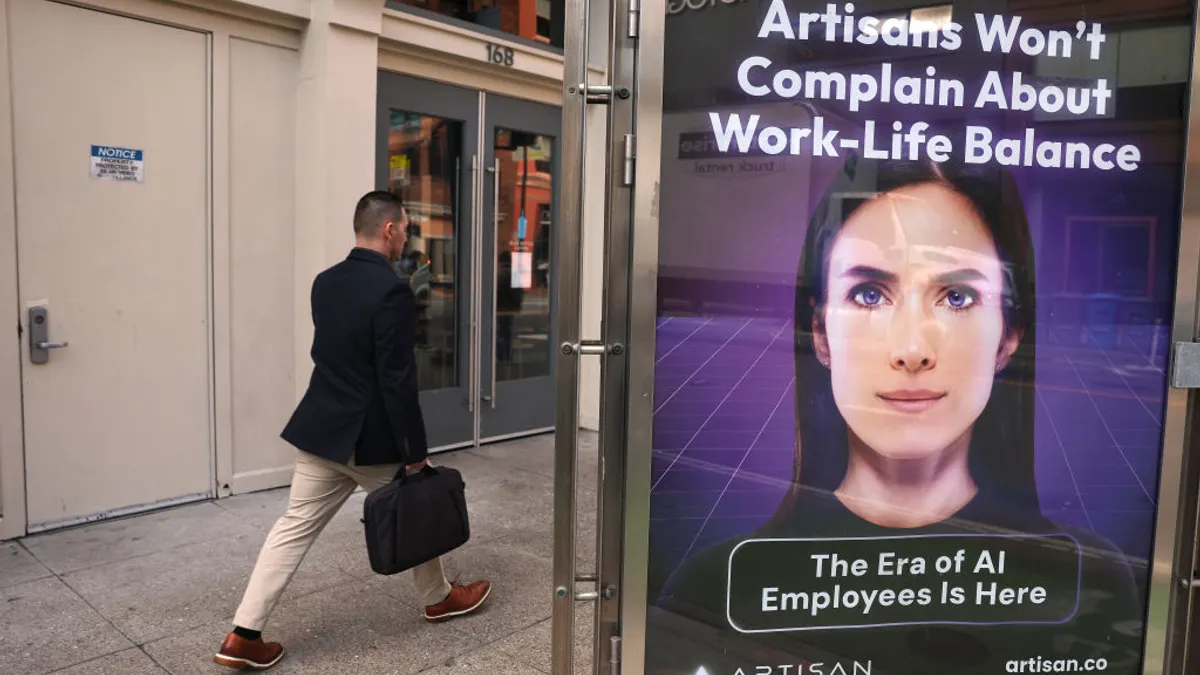More than 19 million jobs — or 12.6% of current U.S. roles — face a high risk or very high risk of near-term displacement due to automation, according to a report from SHRM.
In the highest risk category, blue-collar, service, and white-collar administrative support occupations were comparatively likely to be displaced.
While the “vast majority” of jobs are likely to escape full displacement, SHRM said, “it is also true that a clear majority of current jobs are already automated to some extent, so even if actual displacement risk is relatively limited, rapidly advancing automation technology (e.g., the development of generative AI tools) will almost certainly transform a large share of employment in the years ahead,” SHRM concluded.
In an analysis of more than 800 occupations appearing in Bureau of Labor Statistics data, SHRM found about 39% of the total 152 million jobs in the U.S. face negligible automation displacement risks, particularly because they’re currently not automated at all.
However, about half of jobs face a slight or moderate risk of automation in the near future. The remaining nearly 13% are projected to face high risks because they’re already highly or completely automated today.
In response, workers in high-risk categories should reskill or upskill, SHRM said, particularly the 3.2 million workers estimated to be in the very high risk group. This could include workers in health care support, transportation and administrative support.
“The most exposed groups are those with skill sets that emphasize highly routinized tasks that can increasingly be done using advanced robotics and/or software,” according to the report. “On the opposite end of the spectrum, the groups we estimate to have the lowest exposure to near-term automation displacement risk generally emphasize creative and/or critical thinking, interpersonal skills, and tasks that require a degree of improvisation and ingenuity.”
Generative AI may have a “high human cost,” especially in industries related to finance and insurance; professional services; and information systems, according to another SHRM report. Reskilling will become increasingly important, the organization said, so HR professionals can prepare now with learning and development opportunities.
In the tech industry, more than half of hiring managers have said their companies will likely conduct layoffs within the next year, according to a General Assembly report. Workers with jobs that can be replaced by AI tools may be the first to go, though these workers could also be reskilled or upskilled, they said.
In fact, more than half of leaders who already laid off workers due to AI have said they made the wrong decision, according to an Orgvue survey. Leaders admitted to a lack of awareness around AI implementation, but most still remained positive about AI and said they’d increase their investments throughout 2025.











